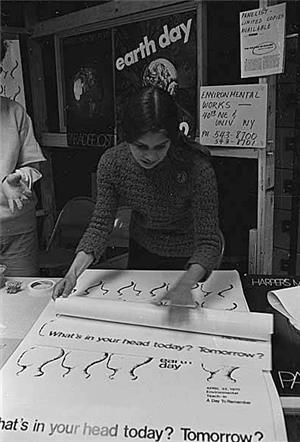On April 22, 1970, the first Earth Day, a nationwide program to spend one day considering issues of environmental protection, is observed in Seattle with teach-ins at the University of Washington and at the Seattle Center.
Senator Henry M. Jackson (1912-1983) addressed some 500 students from the University of Washington and Garfield High School, but was heckled by anti-Vietnam War protesters. He told the group, "You and I know we can't solve this problem [the rape of the earth] with slogans ... by trying to shout someone down" (Seattle Post Intelligencer). Ironically, Sen. Jackson sponsored the original National Environmental Policy Act, which mandated environmental impact statements and gave activists one of their most powerful tools.
A noon rally at Westlake Mall drew only 50 or so participants, but later that evening, some 3,000 persons crowded together at Seattle Center to look at exhibit booths, view films, listen to speeches and panel discussions, and to collect signatures and money. Seattle Mayor Wes Uhlman (b. 1935) challenged the audience to go to the next demonstration in buses instead of in private cars, to fight pollution.
Earth Day was the brainchild of U.S. Senator Gaylord Nelson (D. Wisc.), and coordinated from Washington D.C. by Denis Hayes (b. 1945), who now directs Seattle's Bullitt Foundation. Observing the success of anti-war teach-ins, they proposed a day of teach-ins on college campuses to raise awareness of environmental issues. The plan spread until an estimated 10 million school children took part as well as college and university students. Congress adjourned for the day. Earth Day continues to be observed each year on April 22.

